Fuel Pipeline Explosion In Southern Iran Sends Flames Into The Sky
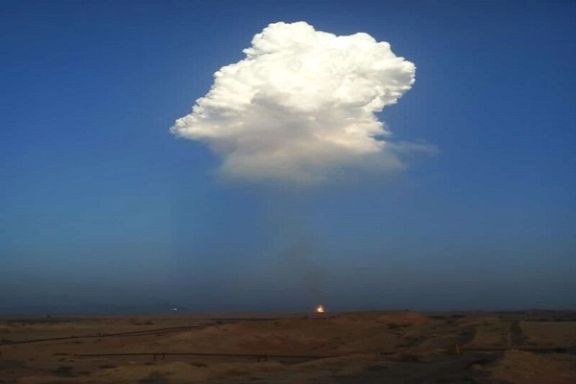
An oil and gas pipeline in Iran’s Khuzestan province exploded and caught fire on Wednesday in what the official media said was the result of metal “fatigue”.

An oil and gas pipeline in Iran’s Khuzestan province exploded and caught fire on Wednesday in what the official media said was the result of metal “fatigue”.
While Iran’s Tasnim news agency affiliated with the Revolutionary Guard said an oil pipeline exploded, Images sent by local residents show huge, ferocious flames shooting into the sky, in what seems more likely to have been a gas pipeline fire.
A tweet from the scene by an account tagged as “Iranworkers” also mentions a gas pipeline explosion, the second in less than a month in the same area.
Tweet unavailable
Residents in a village nearby also reported a strong initial explosion that felt “like an earthquake”.
There have been many explosions and fires in Iran’s military and industrial site since mid-2020, with authorities not giving a full explanation in many instances. However, they have blamed Israel for a series of spectacular sabotage attacks on nuclear facilities, including two explosions at Natanz uranium enrichment center.
The oil and gas industries have also experienced many incidents of exploding pipelines and refineries where large fires ignited.
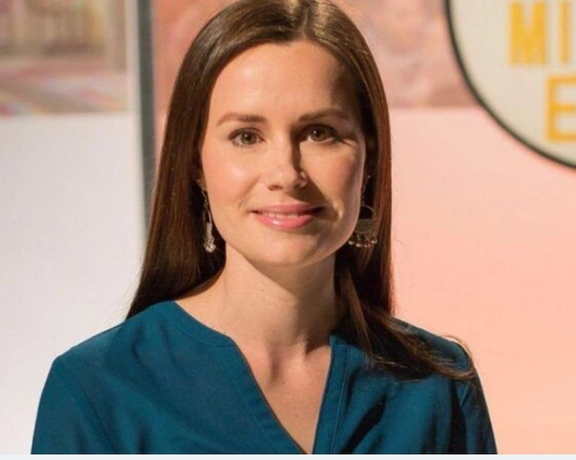
Kylie Moore-Gilbert, an academic previously jailed in Iran, has told the British government it should repay its £400 million debt to Iran only as humanitarian aid.
Paying the debt – due over Britain’s failure to supply military hardware sold to Iran in the 1970s – has become controversial in British politics. Richard Ratcliffe alleges his wife Nazanin Zaghari-Ratcliffe is forbidden from leaving Iran to pressure London to pay, and while some politicians and clerics argue Britain should do so, others, notably on the right wing of the ruling Conservative Party, argue it should not.
In a series of tweets Wednesday, Moore-Gilbert, a lecturer in Islamic Studies at Melbourne University exchanged by Iran last year in a prisoner swap with three Iranian prisoners in Thailand two of whom had been convicted in connection with a bombing plot in Bangkok in 2012, said the UK should not pay the debt but rather decide itself in what form to transfer “humanitarian aid” to Iran.
Tehran won its case over the debt in international arbitration in 2001, but the UK has sat on the money ever since.
"An international court of arbitration has ruled that this debt must be paid," Moore-Gilbert wrote. “But to the Iranian government, not the IRGC [Revolutionary Guards]. “It is the Iranian people's money, and should go to the Iranian people, who are suffering greatly from economic catastrophe and the disastrous impact of Covid.”
RAF plane to Iran
The academic seized on a statement by Jeremy Hunt, former British foreign minister, in Tuesday’s parliamentary debate on the Zaghari-Ratcliffe case, that the UK should immediately pay “if necessary, by getting an RAF [British air force] plane to fly gold to Tehran.”
"Is anyone in any doubt where this gold will end up? Who it will benefit?" Moore-Gilbert tweeted. "What is certain is that £400m will only incentivise the IRGC to take more hostages."
Moore-Gilbert wrote that Zaghari-Ratcliffe, a project manager for Thomson Reuters Foundation, was a hostage, as were other dual citizens including British-Iranian businessman Anoosheh Ashoori and labor activist Mehran Raoof, American-Iranian environmentalist Morad Tahbaz, journalist Jason Rezaian, and Australian backpackers Jolie King and Mark Firkin. Rezaian, King and Firkin have all been released: the backpackers were held for a few months after reportedly flying an unlicensed drone.
Sadiq Khan, London mayor, and Tulip Siddiq, Zaghari-Ratcliffe's member of parliament, in a joint statement before the parliamentary debate said that Prime Minister Boris Johnsonshould take “stronger action” over Zaghari-Ratcliffe: “We believe that this innocent woman has suffered enough. Though responsibility for Nazanin’s predicament lies with Iran, there is more that the UK Government could be doing to help her, and we are making a personal plea to the Prime Minister to take stronger action to try to bring her home.”
Zaghari-Ratcliffe, now 42, was arrested in 2016, convicted in a trial without due process of law of working to overthrow the government and sentenced to five years imprisonment. After being paroled early in 2020, she was charged with new offences and has been refused permission to leave the country.
UN experts and human rights organizations have said Iran imprisons foreigners and dual nationals to use them as bargaining chips against other countries.
Ratcliffe, her husband, has just ended a three-week hunger strike outside the UK Foreign Office. Ratcliffe listened to parliamentary debate Tuesday afternoon from hospital where he is undergoing checks and treatment after his fast.
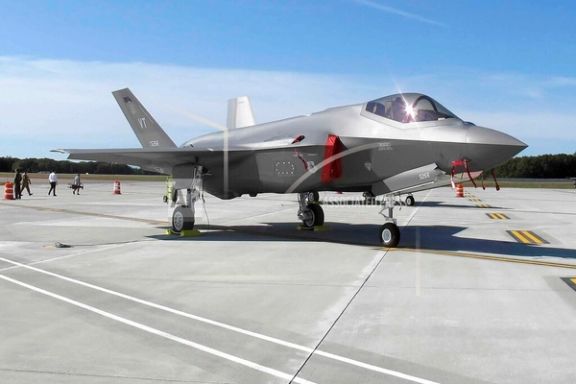
The US remains "fully committed" to a proposed sale of F-35 stealth fighter jets to the United Arab Emirates a senior US official has told the Associated Press.
Despite the Biden administration slowing down the deal, a senior American official overseeing arms exports has told The Associated Press on Tuesday that Washington remains committed.
Mira Resnick, a deputy US assistant secretary of state in the Biden administration, also told the AP at the Dubai Air Show that Gulf Arab partners aren't looking to purchase weapons from Russia as a hedge over American concerns about human rights in the region.
That's even as a high-level Russian delegation met Tuesday with Abu Dhabi's powerful crown prince, Sheikh Mohammed bin Zayed Al Nahyan, at an air show prominently featuring Moscow's competitor to the F-35, the Sukhoi Su-75 Checkmate.
"The F-35 is already in this region, whether it's Israelis flying the F-35, whether it's American F-35," Resnick said. "We would like the UAE to be able to operate the F-35 in a way that (they) can be our security partners and to deter threats, including from Iran."
The proposed sale of 50 F-35s came at the end of President Donald Trump's administration, rising out of a deal that saw the UAE recognize Israel.
The $23 billion sale also included armed drones and other defense equipment sought by the Emirates, a hereditarily ruled federation of seven sheikhdoms also home to Dubai.
After President Joe Biden came into office, his new administration put the arms sale and others on hold, in part over criticism of the UAE and Saudi Arabia over their yearslong war in Yemen, which has sparked the world's worst humanitarian crisis and rages on today.
Only Israel flies the F-35 in the region, part of its so-called "qualitative edge" granted by America after Israel fought several wars against its Arab neighbors since its founding.
Resnick said she'd heard no concerns from Israel or other allies over the F-35 sale to the Emirates, saying "We are fully committed to the F-35 and transferring the F-35, which is a game changer for the Emiratis."
"We are working with them as we speak to make sure that there are clarifications to the various assurances that were made to the previous administration."
Biden himself pledged during his campaign to make Saudi Crown Prince Mohammed bin Salman a "pariah" after US intelligence agencies said they believe he ordered the 2018 killing and dismemberment of Washington Post columnist Jamal Khashoggi.
"We have worked with with Saudi Arabia to make sure that they are able to defend themselves. We know that there are complications in... this relationship and in relationships around the globe," Resnick said.
"But we continue to reinvest and make sure that they can invest in their own defense."
Russia similarly has sought to make an impression at the show, flying a new attack helicopter and showing off the Checkmate fighter jet in a music-video-style presentation to journalists on the tarmac.
But Resnick dismissed that effort, saying "we have not seen any strategic competitor be able to fill the kind of role that we play here in the region."
Report by AP
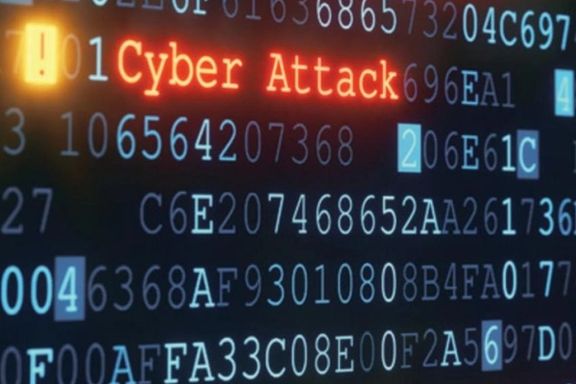
United Against Nuclear Iran (UANI), an advocacy group has said it was the target of Iranian hackers, calling on the US impose sanctions on those responsible.
In a statement on Tuesday, UANI, based in the United States, said it suspected that APT35, also known as Charming Kitten, a well-known Iranian hacking group launched a series of cyberattacks, “Specifically targeting its leadership and members of its Advisory Board.”
UANI CEO Ambassador Mark D. Wallace was quoted as saying, “Those responsible managed to procure data outside of the public realm, impersonated our leadership in communications with former senior officials of the US government, and attempted to harvest Gmail credentials.”
He added that UANI took immediate action upon discovering these attacks “and has notified the relevant law enforcement authorities to request a criminal investigation.”
The group urged the authorities to investigate the incidents and for the US “to enhance its cyber security cooperation with its friends and allies. UANI further urges the Biden Administration to impose fresh economic sanctions against those responsible.”
UANI added that such attacks will not deter it “from achieving its goal of ensuring the regime fails in its pursuit of nuclear weapons, ends its support for terrorism, and stops its oppression of the Iranian people.”
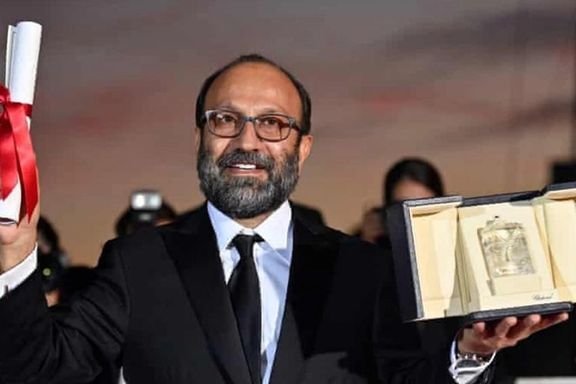
Iran's Oscar-winning film director Asghar Farhadi has distanced himself from the government and the Revolutionary Guard in a statement published on Tuesday.
Farhadi wrote the statement in response to a remark by one of the IRGC's filmmaking organization that previously funded a number of Iranian movies. The official had said: "Farhadi is an intelligent filmmaker. He behaves in a way to please both the government and those who are outside the government," in a way accusing Farhadi of hypocrisy.
This comes while some film critics in Iran and abroad have accused Farhadi of showing the Islamic Republic in a good light to please the ruling mullahs. In his latest film that has been nominated by the government as Iran's entry for the Academy Award, Farhadi showed Iranian prisons in a way the critics described as beautifying a violent regime.
Farhadi said he has no problem if the government decides to pull his film, A Hero, out of the competition for an academy award. He has already won two academy awards for his films A Separation (best foreign language film screenplay in 2012) and Salesman (best foreign language film in 2017). A Hero won the Grand Prix in Cannes Film Festival earlier this year.
He told the IRGC official: "I should say very clearly that I hate you!" adding "How can you deceitfully link me to a government whose hardliners have done everything to tarnish my image?" Farhadi also said he has already declared his views about the downing of a passenger aircraft by the IRGC in 2020 and the murdering of protesters in 2019 as well as causing the death of thousands of Iranians by ignoring their need for vaccines against COVID-19. However, he did not say where he publicized his views about these atrocities. Critics had previously lashed out at him for not expressing his views on these matters.
Meanwhile, the renowned filmmaker revealed for the first time that his passport was repeatedly confiscated at the Tehran airport and asked once again, "How can you link me to a government that has said many times that I had better not return to Iran." It is still not clear whether Farhadi released this statement from abroad or he is in Iran, in which case it could entail punishment by the regime.
Addressing the IRGC official, Farhadi said: "I have never had any sympathy with your backward thoughts and approaches and have never needed to be praised by you. While you have accused me for years of portraying Iran disparagingly, now some others are alleging that I am beautifying the regime."
He added: "If you think nominating my film as Iran's entry for anAcademy Award brings me under your flag, I declare very clearly that I have no problem with withdrawing my film from the competition."
Farhadi added that he regrets that his decision to remain in Iran and make films in Iran has led to the belief that he is a hypocrite. He also promised that he will soon speak out clearly about the other controversies surrounding himself and his movies.
Some two months ago, referring to the way the Iranian government handled the COVID-19 pandemic, Farhadi said the people are angry that "the system" has not taken any decision to improve people's lives. He told the US movie publication Hollywood Reporter that Iranians will never forgive the ban on importing of US and UK-made vaccines.
The Islamic Republic of Iran's Supreme Leader Ali Khamenei banned the purchase of American and British vaccines in January, and his decision reportedly led to thousands of avoidable deaths.
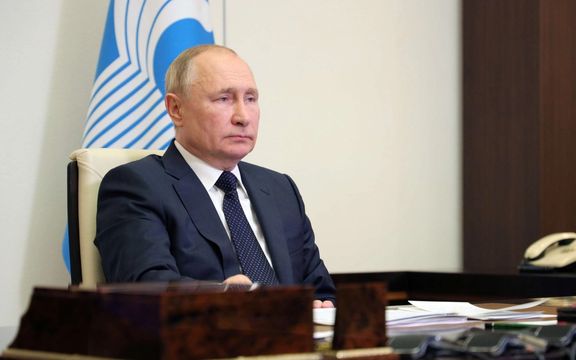
Iran’s President Ebrahim Raisi in a phone call with Russia’s Vladimir Putin on Tuesday said his country “is very serious” about nuclear talks with world powers.
Raisi highlighted the need to conclude a new comprehensive agreement with Russia. "We are ready to conclude the document on long-term comprehensive cooperation between the two countries in order to accelerate the process of the further expansion of bilateral interaction," Tass news agency quoted him as saying.
The two presidents touched upon a series of regional issues, including Afghanistan and tension in the South Caucasus, the official IRNA news website said.
Rouhani also thanked Putin for Russia’s positions on Iran’s nuclear issue and the lifting of US sanctions, saying that Tehran insists on removing them.
Multilateral talks in Vienna aimed at reviving the 2015 nuclear agreement with Iran are scheduled to resume in less than two weeks. Iran interrupted its participation in the talks in June and after a five-month delay and pressure by the West it has finally agreed to return to negotiations.
Raisi also thanked Russia for its efforts for “stability and calm in southern Caucasus, where after a war between Armenia and Azerbaijan last year tensions remain high. IRNA said the two sides emphasized that any geopolitical change of international borders in that region would not be acceptable.
Putin promised to expedite a 20-year cooperation agreement with Iran and help boost the level of bilateral economic and trade ties. He also highlighted cooperation in Syria and said, “We succeeded with a lot of effort to save Syria’s independence and destroy the nucleus of terrorists in that country’” IRNA reported.
Russia’s Tass news agency said that Raisi spoke about shared interests and emphasized that "the positions of Tehran and Moscow are close on many international issues. Opposing the unilateral approach and boosting multipolarity are the common features of the two states.”
Iran’s existing cooperation agreement with Russia dates to 2001 and it has been extended every five years, but last year Tehran asked to review and expand the agreement.
With its economy under the pressure of US sanctions, Iran has been trumpeting the need to expand ties with “the East”, meaning mainly Russia and China. It has also signed a 25-year strategic cooperation agreement with Beijing.